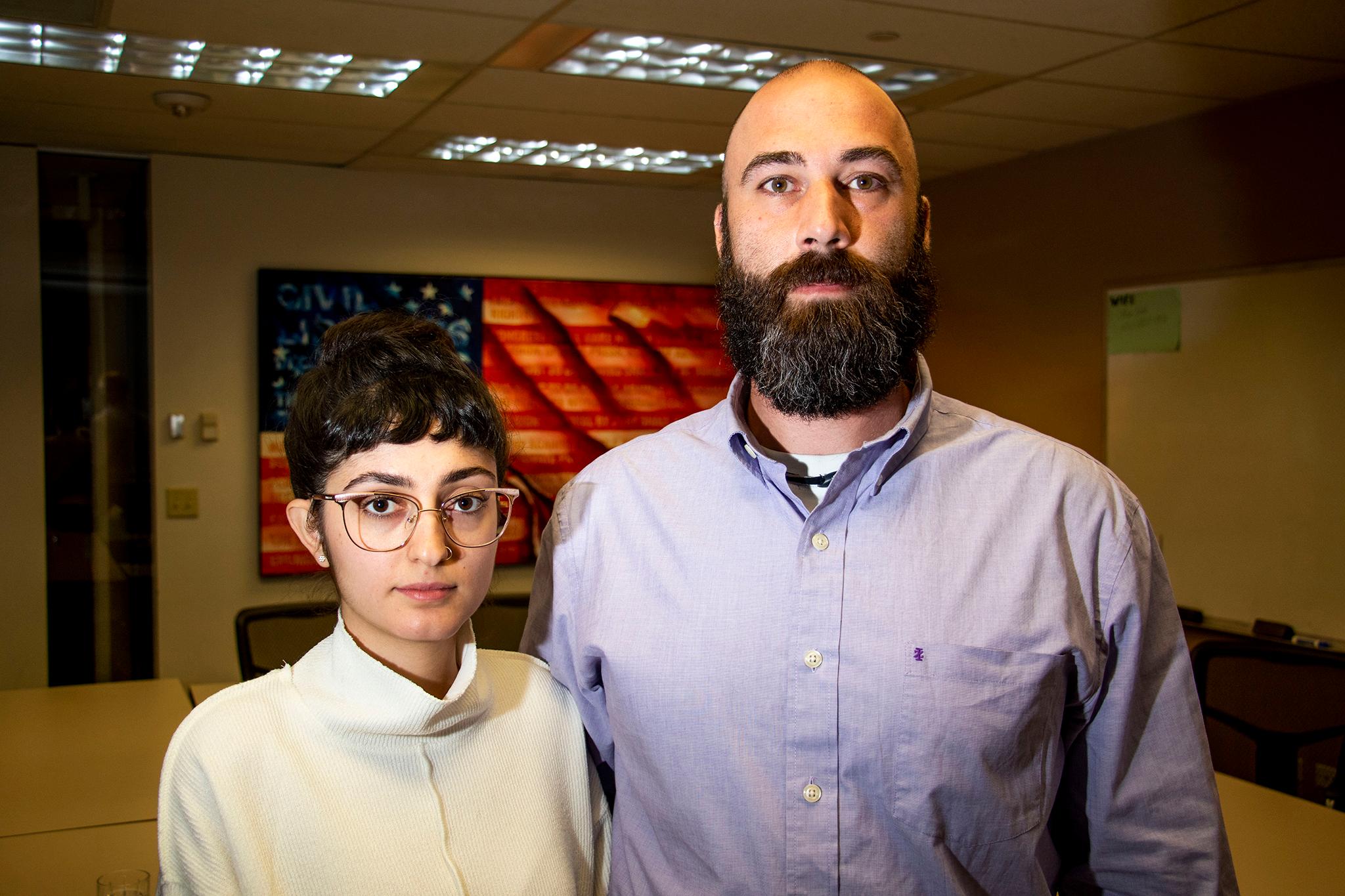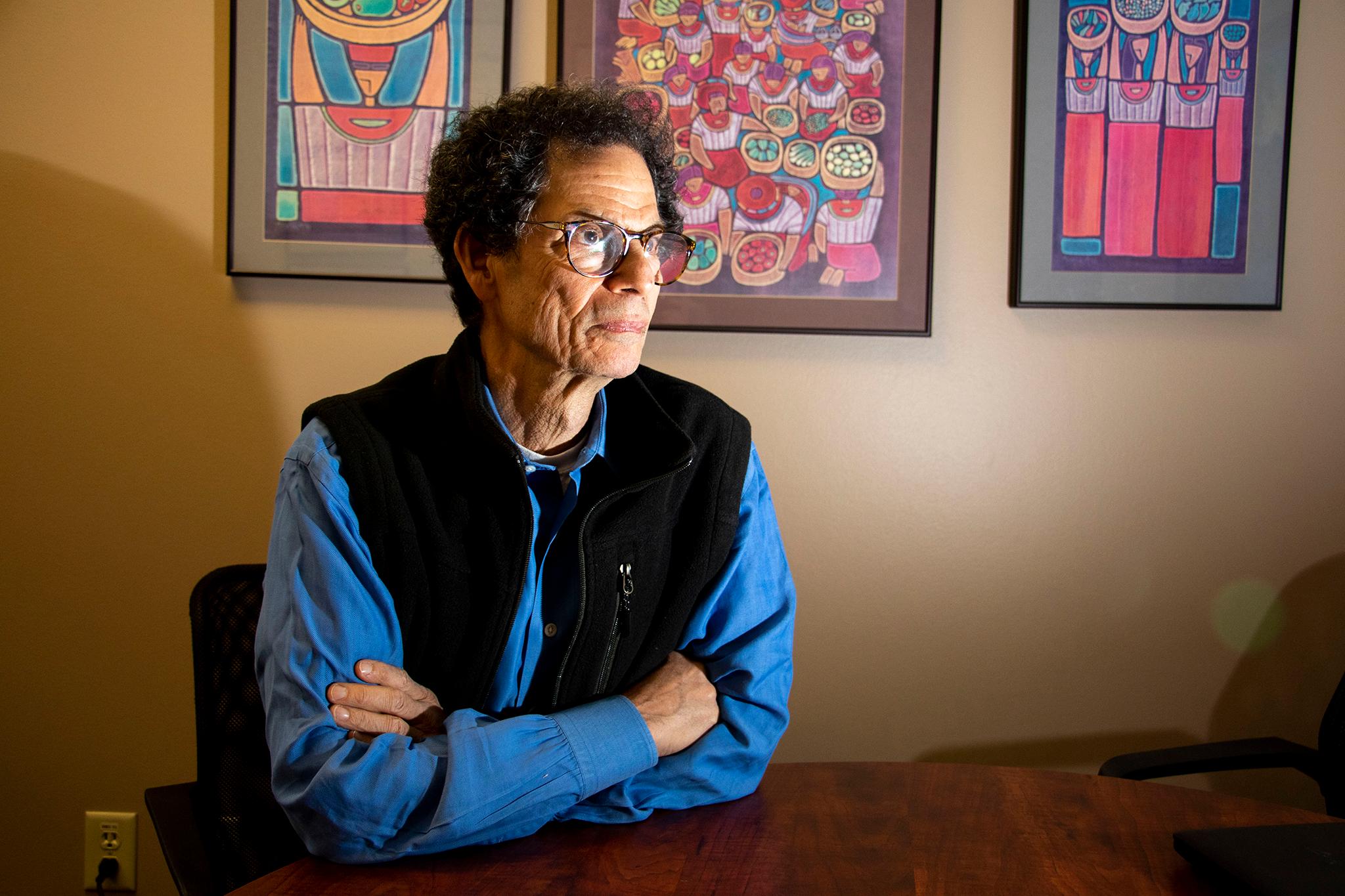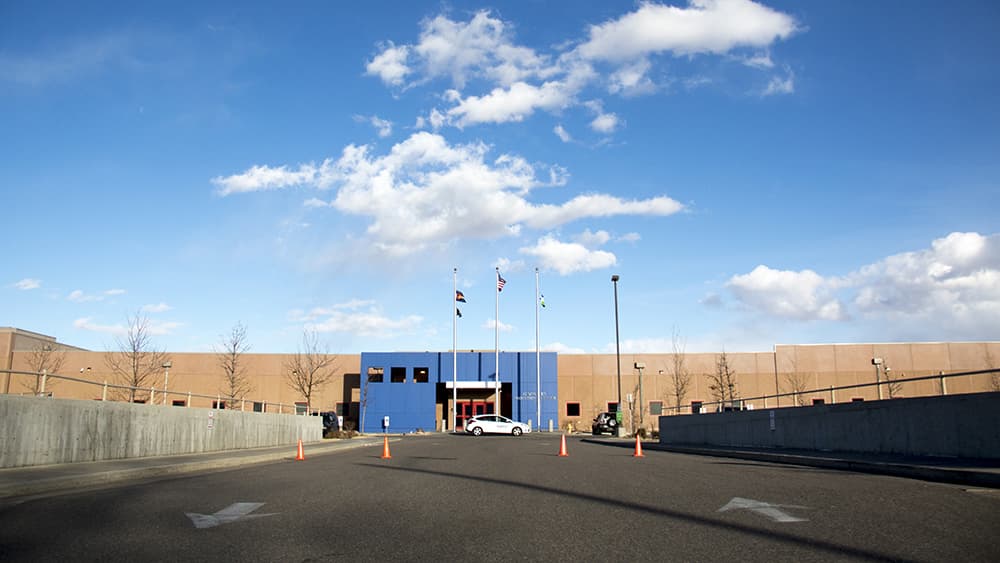In December 2017, Kamyar Samimi, an Iranian immigrant living in the metro area, died while he was held inside a private immigration prison in Aurora. His story was central to a report released by ACLU Colorado last September, which painted a grim picture of how GEO Group operates its Aurora Contract Detention Facility (ACDF).
ACLU Colorado, on behalf of Samimi's family, filed a civil suit in federal court on Tuesday against GEO and presiding physician Dr. Jeffrey Peterson for negligence that lead to wrongful death.
The suit alleges a violation of the Rehabilitation Act and that GEO discriminated against him because of his opioid use disorder. Peterson was a contractor and the only full-time doctor working at the facility at the time of Samimi's death.
Their allegations revolve around Samimi's reliance on methadone, a drug that staves off opioid withdrawal for people addicted to the substance. He used methadone legally for decades to deal with chronic pain from a car accident more than 20 years prior to his arrest. He was denied access to methadone when he was taken into custody, which ACLU called a "medically unjustifiable decision," and it sent Samimi into withdrawal. The report goes on to say GEO and Dr. Peterson "failed to respond adequately or humanely as he neared death."
"The symptoms and suffering Mr. Samimi endured at ACDF could have been avoided entirely had he never been taken off methadone in the first place," the report reads.
Samimi lived in the U.S. legally with a green card. He was arrested by federal immigration agents for a decade-old controlled substance charge.
His children, Tony Samimi and Neda Samimi-Gomez, spoke to Denverite Tuesday morning as ACLU lawyers prepared to file the suit.
Tony, who traveled from his home in Wisconsin, was emotional.
"I think about him every day, so it's something that I'm going to live with forever," he said. "My father's not a statistic, he was a family man, he loved his family."
Neda said she hopes the court will hold GEO accountable for her father's death.
Samimi died less than a year before the first of two chickenpox outbreaks at the prison, which contributed to mounting pressure on GEO. Last summer, U.S. Rep. Jason Crow said his team would make weekly tours of the facility to ensure conditions there did not become inhumane. A spokesperson from his office said Samimi's case played a part in their concern about GEO's management.
This is far from the first lawsuit raised against GEO's immigration detention operations. In 2017, a Mexican man living in Los Angeles sued, alleging that detainees were forced to work for less than $1 a day. Washington State's attorney general is suing GEO for a similar claim. A former GEO employee who worked at a California detention center will appear in court in a few weeks, alleging sexual harassment and a hostile work environment that caused her to miscarry a pregnancy.
In August, 55,000 detainees and "future detainees" from 160 detention centers filed suit against ICE and Homeland Security, claiming the government failed to hold its contractors accountable for unsafe and inhumane conditions. A GEO spokesperson responded to that claim by saying the claims were "baseless."
A GEO spokesperson sent a prepared statement to Denverite regarding the ACLU Colorado case, saying the company "strongly rejects" the allegations and that it is "committed to providing a safe and secure environment" for everyone in its care.


Mark Silverstein, ACLU Colorado's legal director, called Samimi's case an example of "widespread and systemic failure in immigration detention around the country."
He also pointed out a larger issue that the ACLU and pro-immigrant advocates have raised for years: the fact that many people are locked up in the first place for civil violations. While private immigration prisons do hold people who have been convicted of criminal violations, many people spend months in detention without criminal charges. They may be waiting for asylum claims to be processed or they may have been arrested solely for their immigration status, which is not itself a criminal matter.
"They are charged with being in violation of the civil provisions of federal immigration law," Silverstein said. "I think we just have to be asking: Why do we need so many thousands and thousands and thousands of people put in cages for civil violations of the law?"
On the same day that ACLU filed its suit, the U.S. Supreme Court is hearing oral arguments on Deferred Action for Childhood Arrivals (DACA), the program granting legal residency to thousands of immigrants who arrived in the country without authorization when they were children. If the court rules that DACA was unconstitutionally created, a lot more metro-area residents could find themselves detained in Aurora.
This story was updated to include response from GEO.













